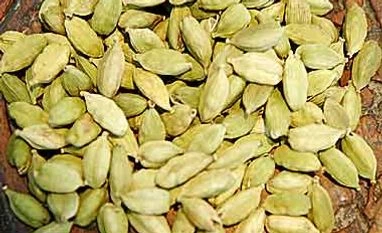Rainfall in most of the cardamom plantations in Kerala and Tamil Nadu helped the crop offset the production loss suffered in the July-August 2015 period. According to the latest estimates, this year's output would be 25,000-26,000 tonnes, up from last year's 24,000 tonnes. Harvesting is in full swing and it will come to a halt by next March. No immediate change is expected and local prices are likely to be steady in the short run as the crop size is higher this time.
Plucking of cardamom is a labour-oriented exercise and during the start of this season, most plantations were badly hit by shortage of workers, who withdrew from work demanding more wages. Farmers told Business Standard the loss was offset by good climatic condition. Withered rainfall helped the plantations to have fresh offshoots, which aided production in the second half of the harvesting season. It is unlikely to have a supply crunch this year as expected earlier.
Moolraj Ruparel, a Mumbai-based exporter, told Business Standard that India has fairly good advantage in the global market as Guatemala is not much active as of now. Production in Guatemala is likely to fall to 27,000 tonnes and almost half their stocks were already sold. So India will have an edge in the global trade of the spice. Export is likely to go up to 4,500 tonnes this year, he said.
Growers have serious concern over the price range since Diwali demand did not help the market. Although there is a fairly good demand from north Indian markets, the average price is still hovering around Rs 600 a kg. According to market analysts, the rising demand in the spot market and the limited arrivals to markets are likely to keep cardamom prices slightly higher. India consumes about 20,000 tonnes of cardamom annually. The average price in auction centers was in Rs 630-650 a kg. The highest price band is Rs 800-830 a kg.
Mohan Bhai Shah, a Tamil Nadu-based dealer, said the market would move steady since there was no shortfall in output this time. The price might change by Rs 20 a kg either down on up, based on the change in demand, he added.
According to Ruparel, the price might go up by next January by Rs 50-70 a kg. In the short run, the market is likely to move on a steady mode as there is no concern over short- or over-supply.
)